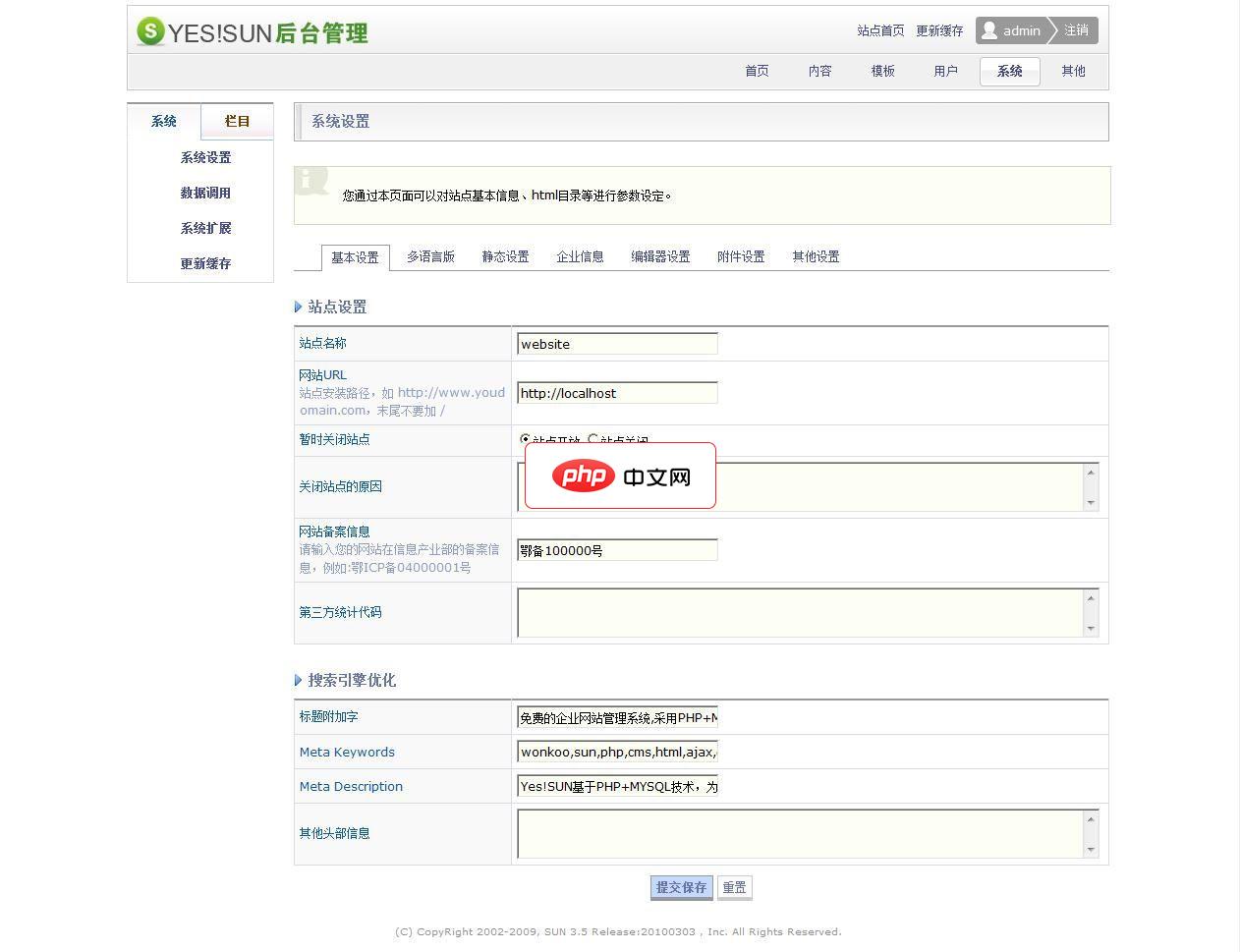







public function index()
{
dump(phpinfo());
}

Yes!Sun基于PHP+MYSQL技术,体积小巧、应用灵活、功能强大,是一款为企业网站量身打造的WEB系统。其创新的设计理念,为企业网的开发设计及使用带来了全新的体验:支持前沿技术:动态缓存、伪静态、静态生成、友好URL、SEO设置等提升网站性能、用户体验、搜索引擎友好度的技术均为Yes!Sun所支持。易于二次开发:采用独创的平台化理念,按需定制项目中的各种元素,如:产品属性、产品相册、新闻列表
 0
0



<?php
// +----------------------------------------------------------------------
// | 缓存设置
// +----------------------------------------------------------------------
return [
// 默认缓存驱动
'default' => env('cache.driver', 'redis'),
// 缓存连接方式配置
'stores' => [
'file' => [
// 驱动方式
'type' => 'File',
// 缓存保存目录
'path' => '',
// 缓存前缀
'prefix' => '',
// 缓存有效期 0表示永久缓存
'expire' => 0,
// 缓存标签前缀
'tag_prefix' => 'tag:',
// 序列化机制 例如 ['serialize', 'unserialize']
'serialize' => [],
],
// 更多的缓存连接(配置成redis一样)
'redis'=>[
'type' =>'Redis', // 这一句很重要
'host' => '127.0.0.1',
'port' => 6379,
]
],
];<?php
namespace app\admin\controller;
use app\BaseController;
use think\cache\driver\Redis;
use think\facade\Cache;
class Index extends BaseController
{
public function index()
{
Cache::store('redis')->set('phone', 150000266892);
dump(Cache::store('redis')->get('phone'));
}
}
以上就是tp6如何使用redis缓存的详细内容,更多请关注php中文网其它相关文章!

每个人都需要一台速度更快、更稳定的 PC。随着时间的推移,垃圾文件、旧注册表数据和不必要的后台进程会占用资源并降低性能。幸运的是,许多工具可以让 Windows 保持平稳运行。

Copyright 2014-2025 https://www.php.cn/ All Rights Reserved | php.cn | 湘ICP备2023035733号